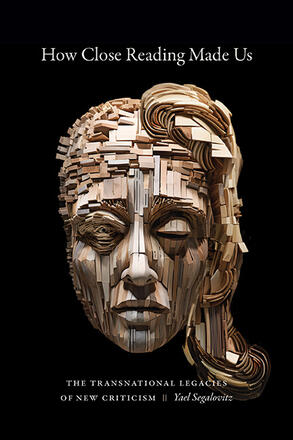
How Close Reading Made Us
The Transnational Legacies of New Criticism
Alternative formats available from:
Shows how the method of close reading traveled from the United States to Brazil and Israel, revealing its profound impact on global modernisms and reframing the lasting significance of New Criticism.
Description
Does reading shape who we are? What happens to the relationship between reading and subject-formation as methods of interpretation travel globally? Yael Segalovitz probes these questions by tracing the transnational journey of the New Critical practice of close reading from the United States to Brazil and Israel in the mid-twentieth century. Challenging the traditional view of New Criticism as a purely aesthetic project, Segalovitz illustrates its underlying pedagogical objective: to cultivate close readers capable of momentarily suspending subjectivity through focused attention. How Close Reading Made Us shows that close reading, as a technique of the self, exerted a far-reaching influence on international modernist literary production, impacting writers such as Clarice Lispector, Yehuda Amichai, William Faulkner, João Guimarães Rosa, and A. B. Yehoshua. To appreciate close reading's enduring vitality in literary studies and effectively adapt this method to the present, Segalovitz argues, we must comprehend its many legacies beyond the confines of the Anglophone tradition.
Yael Segalovitz is Assistant Professor in the Department of Foreign Literatures and Linguistics at Ben Gurion University of the Negev, Israel.
Reviews
"Whereas reader response theory has often been seen as a reaction to New Criticism's focus on the objectivity of the text, How Close Reading Made Us argues that New Criticism has always involved work on the self. Moreover, this work was explicitly political. For American New Critics and their counterparts in Brazil and Israel, changing the reader's psyche had the potential to change society." — Laura Heffernan, coauthor of The Teaching Archive: A New History of Literary Study
"Segalovitz offers a bold comparative model, one that eschews the tendency to compare 'like to like' in favor of paradox and tension. The juxtaposition of US, Brazilian, and Israeli literatures leads to surprising connections and insights, pushing each tradition out of its hermeneutic comfort zone." — Adriana X. Jacobs, author of Strange Cocktail: Translation and the Making of Modern Hebrew Poetry